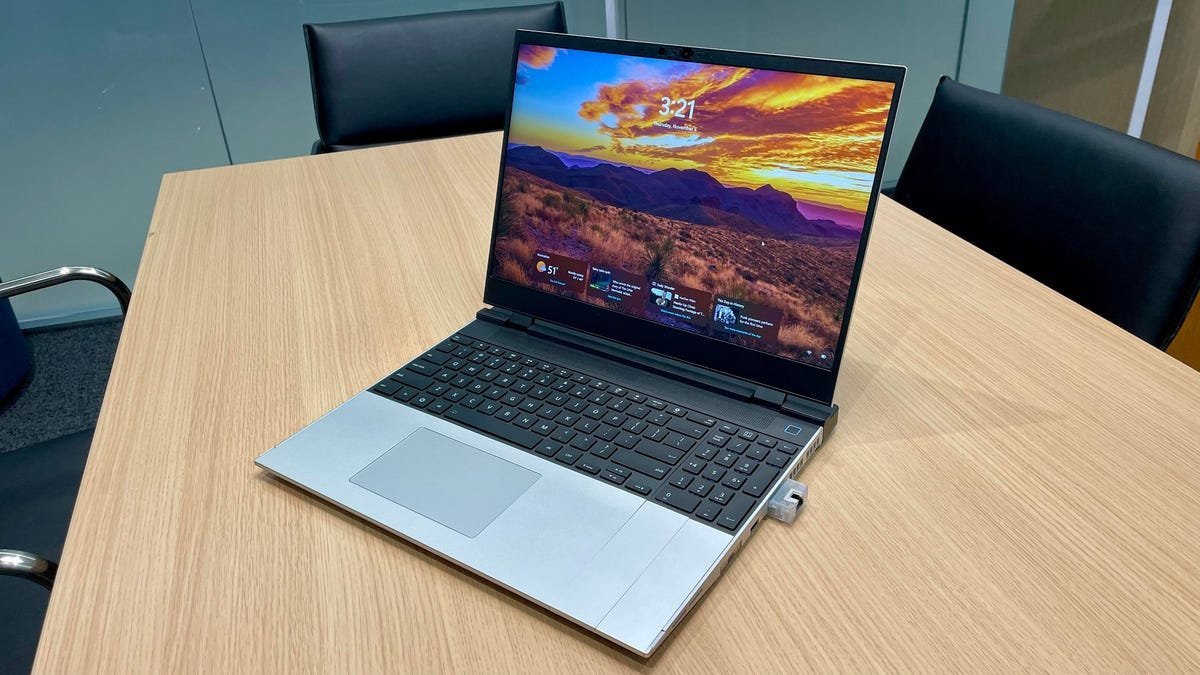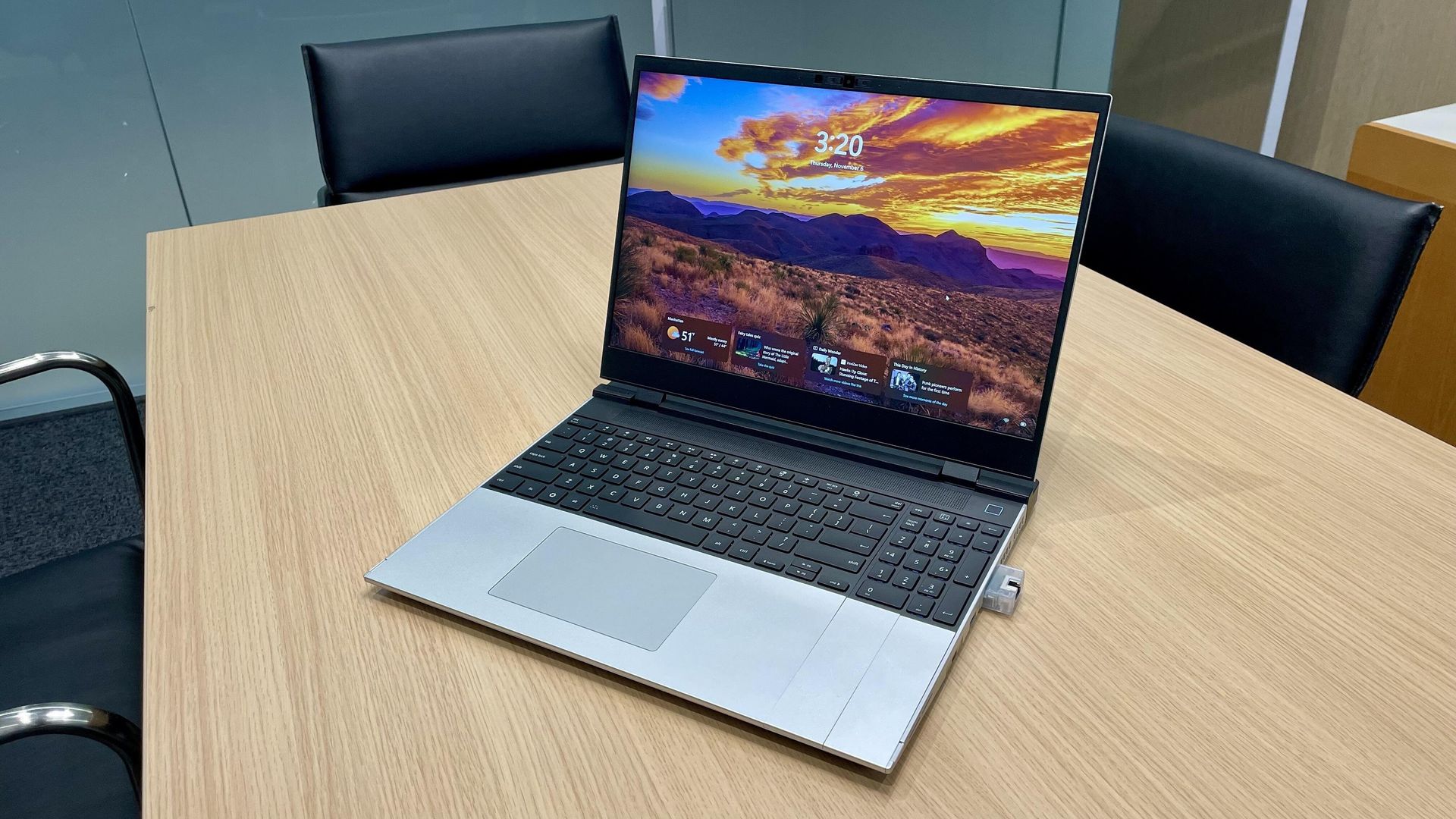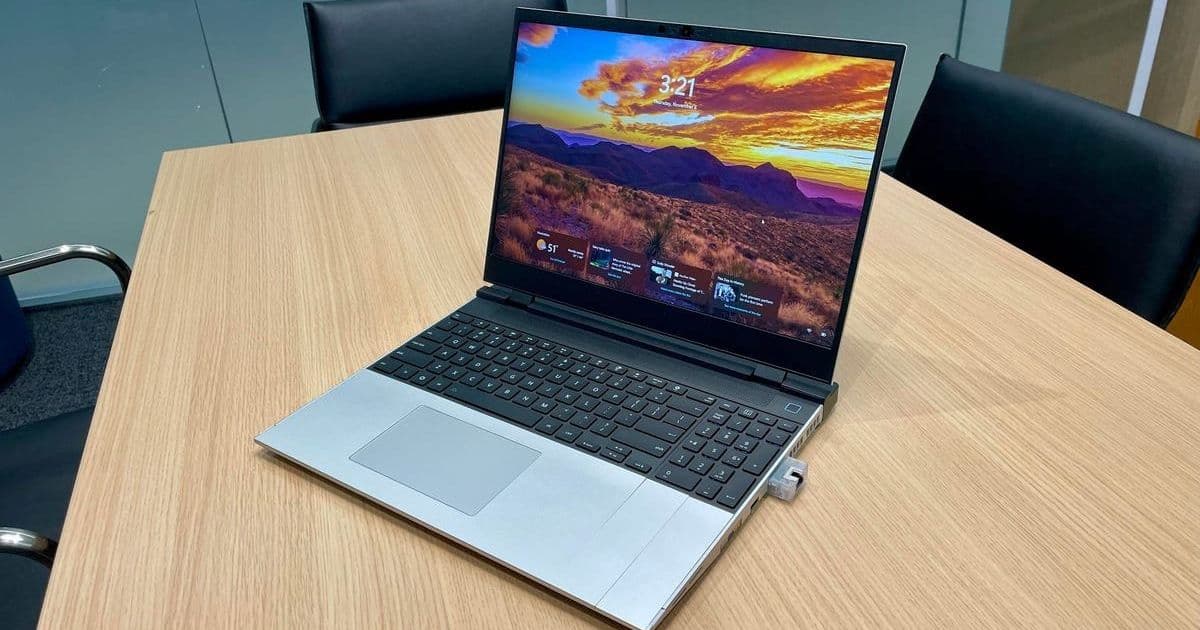Framework's upgraded Laptop 16 delivers unprecedented customization with AMD Ryzen AI 300 series CPUs and multi-vendor GPU options, challenging disposable tech culture. While battery life and build consistency present tradeoffs, its DIY ethos offers developers and Linux enthusiasts a future-proof, repairable workstation.
In an industry dominated by sealed devices and planned obsolescence, Framework's Laptop 16 emerges as a radical proposition: a high-performance, user-assembled machine that champions repairability and customization. The newly refreshed model, now shipping for $1,499, features AMD's cutting-edge Ryzen AI 350/HX 370 "Krackan Point" processors and a groundbreaking choice between Nvidia GeForce RTX 5070 or AMD Radeon RX 7700S GPUs in its expansion bay—a first for modular laptops.
 Image: Framework Laptop 16 showcasing its modular expansion bay and sleek design.
Image: Framework Laptop 16 showcasing its modular expansion bay and sleek design.
Engineering Freedom in Practice
What sets the Framework apart is its commitment to accessibility:
- DIY Assembly: Ships as components with comprehensive, QR-code-linked guides
- Unprecedented Configuration: 8GB to 96GB DDR5 RAM, 500GB to 8TB SSD options
- Hot-Swappable Ports: Six expansion slots with USB4, second-gen DisplayPort
- Linux-First Philosophy: Native support out-of-the-box for developers
"The expansion bay now includes a USB-C port supporting four external displays," notes the review, highlighting its workstation potential. The 2560x1600 matte display (165Hz/500 nits) delivers color-accurate visuals for both development and gaming.
Performance Realities and Tradeoffs
While the hardware impresses, real-world testing reveals nuanced challenges:
- **Thermals:** Redesigned fans reduce noise but struggle during sustained loads
- **Battery Life:** 85Wh capacity falls short for all-day mobile use
- **Build Consistency:** Modular design occasionally results in fit imperfections
The 4.6-pound chassis also positions it as a portable desktop replacement rather than an ultraportable—especially with the GPU module adding bulk.
Why This Matters Beyond Specs
Framework isn't just selling a laptop; it's pioneering a movement:
- Circular Economy: Components can be upgraded individually, extending lifespan
- Consumer Empowerment: Avoids manufacturer lock-in for repairs/upgrades
- Linux Viability: Validates open-source OS as a first-class productivity platform
 Image: Close-up of the keyboard module showing repairable design.
Image: Close-up of the keyboard module showing repairable design.
As Windows 10 support sunset looms, the Framework offers an escape hatch from forced obsolescence. Though the premium pricing and physical compromises won't suit all users, it represents a tangible shift toward sustainable computing—proving that power and repairability aren't mutually exclusive. For developers and tinkerers, this modular beast isn't just another laptop; it's a statement against disposable tech culture.

Comments
Please log in or register to join the discussion